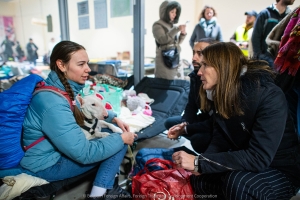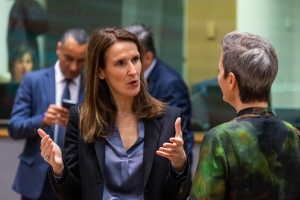Ministerial meeting of the Coalition for the Sahel: intervention
Only the spoken word shall count
Excellencies,
Ladies and gentlemen,
First of all, I would like to thank the High Representative of the Coalition, Mr Adoum, for organising this exchange of views on the situation in the Sahel and on the future of our Coalition's action.
I agree with the High Representative that the context in the Sahel has changed since the roadmap was approved last year. For example, three weeks ago, given the circumstances, we made the important decision to reorganise the Takuba mechanism under the Coalition's first pillar.
Given the profound change in the situation, it is now essential to extend the discussion to the other pillars and update the roadmap.
Despite our efforts, the Sahelis' overall situation has deteriorated. Many residents of the Sahel are also rebelling, either by supporting coups or by joining jihadist groups.
The European Union's Sahel Strategy provides some solutions: in addition to the Coalition's four pillars, the battle against terrorism can only be won if greater account is taken of the local population's aspirations to bring about change. We must accommodate this reality and cooperate to meet this expectation.
The responsibility for addressing this lies primarily with the authorities in Sahel countries. But it is our responsibility to continue to further encourage and support reform in the Sahel, and to denounce the lack of this.
These bold reforms will need to restore the legitimacy of the state and democracy, which are regularly undermined. In this regard, I welcome the progress in the battle against impunity noted in the Coalition's progress report.
In Mali, the return to democratic and constitutional order remains the main short-term objective. We also need to answer the questions raised by the presence of the Wagner group, which is very troubling. It is in this context that Belgium supports the sanctions against Malian officials that extend the duration of the transition.
This should not prevent us from maintaining a channel of communication with the transition authorities. Indeed, Belgium believes it is important that our collective commitment to Mali in pillars 2 and 3 be maintained, albeit adjusted. This should enable us to continue the work of reform and modernisation, which is essential for the sustainable stabilisation of the country.
The security situation in the coastal states of the Gulf of Guinea is threatening to deteriorate. We will need to give them more support in the near future. This must be based on the Coalition's four pillars. We will need to work with our West African partners to determine the best practical way to do this.
Belgium intends to continue its commitment to the Sahel. Poverty, climate change, illegal migration, insecurity, violence and better governance are all challenges that require our collective action in support of the countries in the region.
Thank you.


